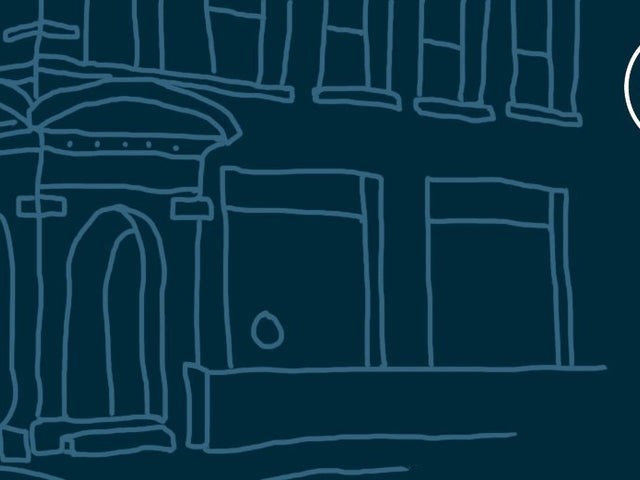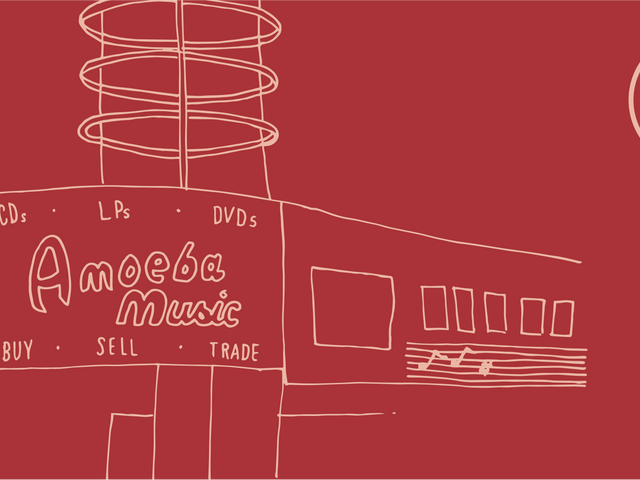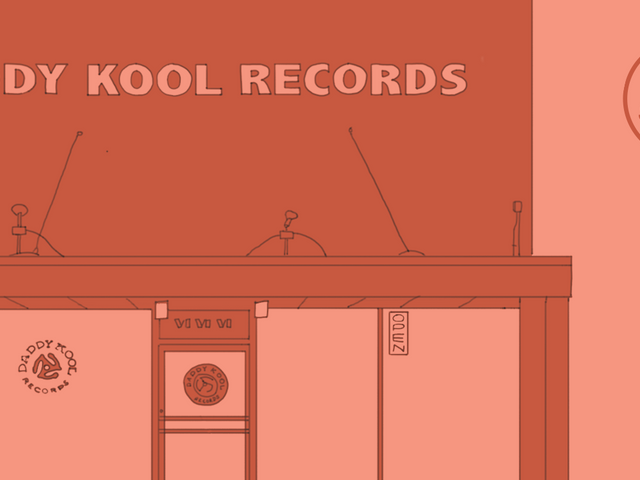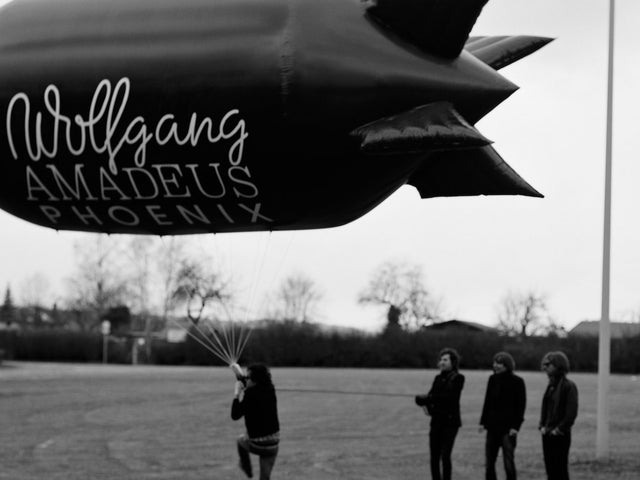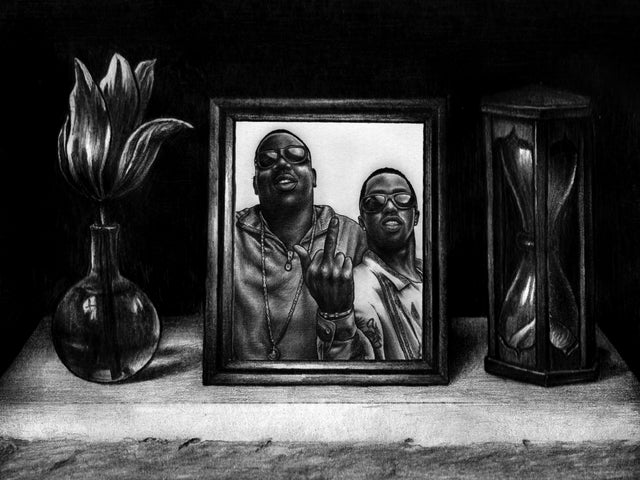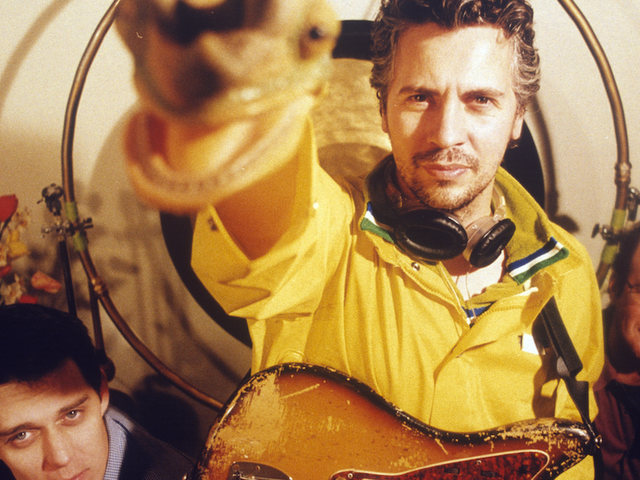The 50 Best Record Stores In America is an essay series where we attempt to find the best record store in every state. These aren’t necessarily the record stores with the best prices or the deepest selection; you can use Yelp for that. Each record store featured has a story that goes beyond what’s on its shelves; these stores have history, foster a sense of community and mean something to the people who frequent them.
Tourists tend to lean on cliches when they speak about New Orleans. If they’re not referencing the city’s ever-present humidity and the way it slowly infiltrates their bloodstream, they’re waxing poetic about the sheer vibrancy infusing everything from the Marigny’s colorful home swatches to the clarion call of brass peppering the most random and therefore poignant of moments. In truth, there’s a reason such cliches continue to spiral around the city, helping structure its meaning to non-residents who travel back home chock-full of stories. New Orleans is many things to many people, but at its beating heart it is these three: heat, color and music.
It seems exactly right, then, that the best record store in Louisiana would be situated at the nexus of those very qualities. Euclid Records, located in the Bywater, has become a staple for any record collector, no matter their audiophile ranking. An offset of the original St. Louis store, Euclid opened its New Orleans location in 2010. In a city that seesaws between tradition and progress, that’s still newcomer level by some standards, but in many ways Euclid feels as if it’s long been a staple of the Bywater. First located in a single-level, bubblegum pink building, it quickly garnered a local and loyal customer base thanks to its immense and ever-shifting selection.
In 2014, the store relocated just a few blocks east to a two-story building on Chartres Street. “One day I was walking by it, and thought, ‘Huh, well we’re not really ready, but is there going to be a better option when we are ready?’” operator James Weber Jr. recounts. In taking over the larger space, Euclid split its stock between the two floors. New arrivals (both new releases and newly acquired used vinyl) sit downstairs surrounded by rock, pop, R&B, soul and world, while the store’s serious collection of 45s, jazz, country and folk can be found upstairs. Even though Euclid gave up what Weber described as a “character-driven building” in transitioning to a larger space, they nodded to their roots by painting a section of the interior backdrop and windows a hearty shade of hot pink.

The largely residential Bywater neighborhood has many eclectic businesses, but these are packed among homes. Whether it’s local eatery Satsuma, cocktail-centric Country Club or even the newer addition of Pizza Delicious, businesses operate in tandem with the neighbors they surround. Euclid is no exception. “The idea is to make a business that carves out a physical space that is a locus of exchange — exchange of information, exchange of culture, exchange of positive vibes,” Weber explains. “Community center-style of business is what I want to call it.” Beyond buying and selling records, Euclid hosts book readings (music journalist Paula Mejia spoke about her new 33 ⅓ book on The Jesus and Mary Chain’s Psychocandy), bands host in-store performances and there are even the occasional movie nights outside. Euclid may need commerce to function, but its offerings extend far beyond a strict economic exchange.
Weber credits a large part of Euclid’s loud, colorful character to the staff of six: Lefty Parker, Kate Reilly, E. Maximillion, Gabe Soria, Wilson McCullough and Joe Kile. “Like a bar or a club, it all starts with the personnel and their personalities,” he says, “Their creativity and what they bring to the table when the building gets full of records and then humans trying to sell them and the kind of life that brings.” When I ask him about the cliches that have lingered over record stores since movies like High Fidelity and Empire Records associated musical taste with elitism, he says, “I feel like we’ve avoided the snobbery aspect. We will talk to you about whatever you want to talk about: music, books, art, the finer things in life.”
Weber saw the birth and then dearth of record stores in St. Louis, and though high snobbery once reigned supreme, there’s a different spirit that has emerged in the years since vinyl has started to rise again. “There were stores — not naming names — that I refused to shop at when I was 19 or 20 years old because of that,” he says, recounting the elitist days. “That is not to say that we don’t all have our days. It’s still a retail business, and there’s still emotional labor involved, especially with tourism because every day you see people smiling have the best week of their life, which is great, but it’s also just a city that we all have to live in and have bad days and good days.”

If Euclid specializes in any particular selection, it deals most in soul and funk. After all, the city birthed major names like Allen Toussaint, the Neville Brothers, the Meters, Dr. John, Trombone Shorty and so many others that formed and continue to inform the backbone of those genres. “In the way that grocery stores sort of only work very small or very large — there’s a particular scale to that economy — I think we are operating as one of the larger record store styles, which is all things to all people,” Weber says. “It’s difficult to pin it down to one genre, especially because New Orleans sees upwards of 11 or 12 million tourists every year. It is a very wide demographic.” But that’s not to say the store leans on cliches. Far from it. Any patron who walks through the usually open front door won’t find traditional jazz playing in the background. The staff play an eclectic mix of rock, punk, soul and more, usually culled from what they first purchase from those looking to trade their records for something new.
For all the tradition the store trades in, it’s actually situated in a neighborhood experiencing a vast and, for many residents, upsetting kind of upheaval. AirBnB has in no uncertain terms overtaken the Bywater, as property management companies and landlords choose the financially lucrative business of renting out vacation slots rather than homes to locals. “I went through a period of a year or so where I was really frustrated and angry about it,” Weber says. “It is change, certainly. It is a disruptor style of business. It has changed the fabric of the neighborhood some.” In a city where neighborly bonds have stitched together the very fabric of a neighborhood, that kind of disruption has of course shifted things in the Bywater. Besides driving up rents for those who are actually able to find a long-term rental, AirBnB transform the underlying sense of neighborhood away from a blend between commercial and residential towards a more commercial feel. “In cases when I used to know everybody on certain blocks, all of a sudden there were new faces every week, and it took some adjustment,” Weber says.
As it stands through changes of its own making and those outside its control, Euclid is as much a part of the community as the community is a part of their clientele. Every Mardi Gras, the store closes for three days to celebrate the fever-pitch revelry that leads up to that singular day. The store’s “Boombox Gang” brings the music to the streets in a different way. The staff and its family and friends take the party outside by gathering in the Bywater and Marigny with their boomboxes.
“There are very real relationships there,” Weber says, “and the best part is we live in a city where we can close our doors for three days over Mardi Gras, and tell our customers, ‘We get to see you out in the streets.’ And then we do. I think those are the things that make it special. It’s the stuff that floats around the store versus just the foundation of the commerce of the store that really makes us whatever it is we are, this weird record experiment in New Orleans.”
Amanda Wicks is a Brooklyn-based cultural journalist (and former New Orleans resident) currently on staff at Pitchfork. Beyond contributing regularly to The Bluegrass Situation, she's been published with Village Voice, Paste, Bandcamp and others.
Related Articles
Join the Club!
Join Now, Starting at $44Exclusive 15% Off for Teachers, Students, Military members, Healthcare professionals & First Responders - Get Verified!
